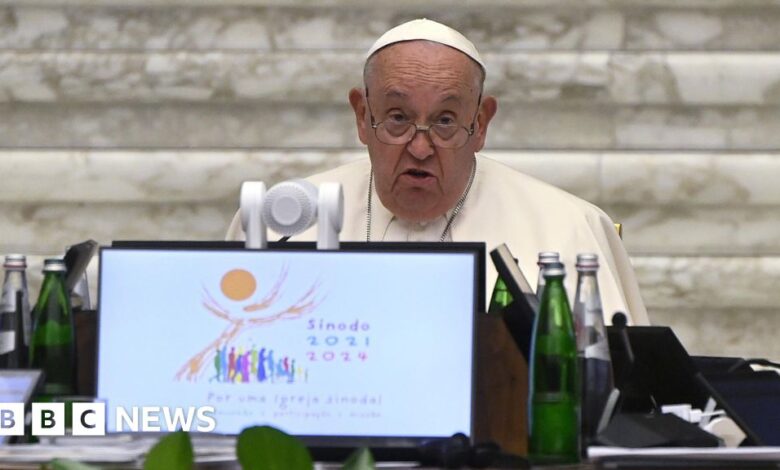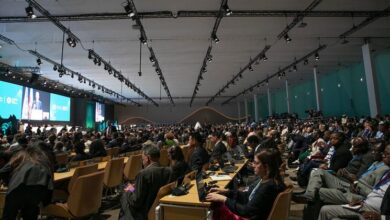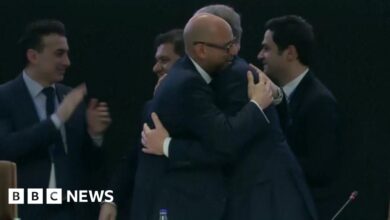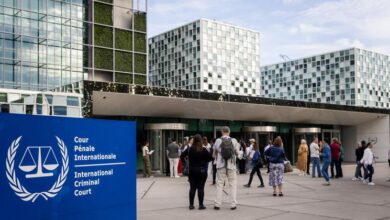The Papal Summit ended with a call to ensure leadership roles for women

The month-long Vatican summit ended with a call for women to have more leadership roles in the Catholic Church, not a call for women to be ordained priests as some progressives have said. was hopeful when starting the process.
The synod was the conclusion of a four-year consultation aimed at gauging the views of all church-going Catholics globally, and Pope Francis opened the regular conference of bishops with several Catholics. people, including nearly 60 women out of 368 voting delegates.
All Synod members voted on each of the 151 proposals.
Although all proposals passed with the required two-thirds majority, the largest number of “no” votes was given to the proposal for women to take on more leadership roles in the Church, where the clergy are all male.
Advocates of a greater role for women in the Church had hoped the Synod might call for women to serve as deacons. The Synod did not proceed with the move, but its final document said “there are no reasons or obstacles that would prevent women from exercising leadership in the Church.”
Currently the Catholic Church only allows men to become deacons – ordained ministers who can officiate at baptisms, weddings and funerals but are not allowed to celebrate mass, unlike priests. item.
While reform groups also hope for concrete ways to better welcome gay people in the Church, the final document makes no mention of the LGBT+ community, other than a passing mention of gay people in the Church. people feel “excluded or judged” because of their “marital status, identity.” or sex”.
The Rev. James Martin, a prominent American Jesuit priest who serves the LGBT community and is a member of the synod, said it was “not surprising” that the new text did not specifically mention the group.
Progressives may be disappointed, but some conservatives have been upset about the entire summit from the start.
It was a grand exercise, and the Pope, 87, called the final text a “gift” for the world’s 1.4 billion Catholics, but many traditionalists were skeptical. objected to opening up this consultation process – a personal project of his – to the laity and questioned the idea of assessing the views of non-clerical people.
But it is consistent with Pope Francis’ view that it is grassroots Catholics who must play a larger role in shaping the future of the Church than just cardinals and bishops – just one Among the many reasons that traditionalists gave him difficulty.
For him and those who support this process, the mere fact of having widespread outreach and having people with opposing views discuss together is a success, in the hope that it can be developed in future.
Theologian Timothy Radcliffe, from Oxford, who served as the conference’s chief spiritual adviser, said: “We live in a deeply divided world, in which war and violence are on the rise. increases and this polarization affects the life of the Church.
“I personally have made friends here with people from all over the world. For example, to know African bishops often have very different views from me about how we should welcome LGBT people, but you build friendships that help you overcome these disagreements into a depth of morality. your own news,” Father said. Timothy, who will be named a cardinal in December.
But it remains unclear how these discussions will be carried out beyond the meeting in any practical sense.
And through so much compromise and avoidance of controversy, observers see little boldness in their proposals. So a supposed effort to bring people together may have left many people feeling as marginalized from the Catholic Church as they had felt before.




